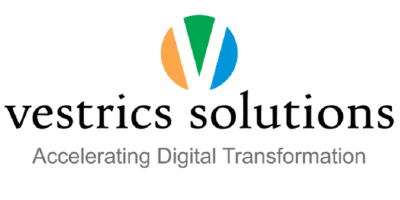Automotive
Automotive industry solutions drive sustainable and profitable growth.
Digital Transformation for the Automotive Industry
their businesses digitally and be ready for mobility.
Manufacturing and Adopting EVs
ADAS and connected cars
Shared Mobility and Mobility-as-a-service
Resilience in Automotive supply chains
Digital retailing in the Automotive industry
Road to sustainability
Begin utilizing SAP's cloud services
for the automotive industry.
Explore the possibilities of digital transformation with SAP by utilizing RISE with SAP for Automotive if you still need to move to cloud ERP or enhance your current cloud ERP (from any vendor) with SAP’s cloud solutions for the automotive sector.
RISE with SAP
1.Product lifecycle cost management.
2.Integrated cloud MES and analytics.
3.A centralized vehicle repository for mobility as a service.
4.Streamlined and automated returnable packaging management across the supply chain.
5.Self-billing process optimization and collaborative problem-solving with suppliers.
Cloud solutions specifically tailored to automotive manufacturers
1. Cloud-based solutions for the automotive industry.
2. Collaborate with existing systems.
3. Increasing your current investments.
➜ Manual Data Entry Errors: Without a comprehensive ERP system, companies are forced to manually enter all of their data into multiple systems and applications, increasing the potential for data entry errors.
➜ Poor Visibility of Data and Insights: Companies need an ERP system to access and analyze their data across departments and operations quickly. This leads to a need for more visibility into the data and insights into performance and customer trends.
➜ Reduced Efficiency and Automation: With multiple systems and applications managing individual processes, companies cannot automate manual tasks, reducing operational efficiency.
➜ Inefficient Reporting: Companies need an ERP system to build robust, accurate reports on their business performance to consolidate data across departments.
➜ Low Data Security: Without a comprehensive system to manage data across the organization, companies cannot monitor data to ensure it is not falling into the wrong hands.
➜ Faster Decision Making: Automotive companies that use SAP can easily access real-time data from multiple sources and combine it to obtain valuable insight into overall business health. This enables faster and more informed decision-making.
➜ Reduced Costs: SAP provides sophisticated In-Memory Computing (IMC), Business Intelligence (BI), and other analytics tools. This allows automotive companies to accurately predict operations and implement cost-effective measures to optimize resources and processes.
➜ Enhanced Customer Experience: SAP offers excellent customer relationship management (CRM) solutions, allowing automotive companies to collect comprehensive customer information. This can help automotive companies to provide excellent customer service and enhance customer retention.
➜ Improved Supply Chain Management: Automotive companies that use SAP can easily manage complex supply chain operations with accurate tracking, forecasting, and warehouse management. This allows automotive companies to reduce costs and ensure timely delivery of goods and services to customers.
➜ Maximizing Operational Efficiency: Automotive companies can use SAP to monitor their operations in real-time, identify process bottlenecks, and implement measures to maximize efficiency. This ensures the smooth running of business processes and helps automotive companies to be more productive.
SAP Analytics Cloud provides powerful tools that help automotive companies analyze data and generate reports. It allows users to access, cleanse, and organize data from various sources, including sales, inventory, purchasing, and customer service. They can then use the data to create visualizations, generate reports, and identify trends and insights. SAP Analytics Cloud offers built-in machine learning capabilities to help automotive companies make data-driven decisions. By leveraging the power of predictive analytics, users can gain better insights into their customers, operations, and market trends. With SAP Analytics Cloud, automotive companies can make more informed decisions and drive growth in the competitive automotive industry.
➜ SAP can provide powerful analytics and predictive insights to support end-to-end supply chain visibility, cost optimization, and process optimization.supply chain visibility, cost optimization, and process optimization.
➜ SAP's Advanced Asset Management (AAM) and Intelligent Asset Optimization (IAO) solutions can help automotive companies reduce asset-related costs and increase the lifespan and utilization rate of their automotive components and equipment.
➜ SAP ERP solutions can provide automotive companies with an integrated system that supports the entire system lifecycle, from manufacturing to customer service, to optimize the sales and delivery process, improve efficiency, and reduce production downtime.
➜ SAP HANA can be used to analyze and evaluate data to help automotive industry manufacturers develop new product designs and manufacturing methods and offer personalized customer experiences.
➜ SAP's connected vehicle solutions, including Vehicle-to-Vehicle communication, over-the-air (OTA) software updates, and related services, can help automotive manufacturers improve the customer experience and boost efficiency.
➜ Automotive companies can use the Supply Chain Control Tower solution to monitor and measure the performance of the company's supply chain, allowing them to quickly identify challenges and ensure they are getting the most out of their supply chain management.
SAP can help companies in the Automotive industry in their digital transformation by providing industry-specific solutions that can help improve operational efficiency and enable companies to leverage data better. Some of the solutions that SAP could offer include:
➜ Automated workflows for order management, delivery, and billing.
➜ Real-time analytics for machine learning and predictive analytics.
➜ Automated production planning and management.
➜ Predictive maintenance for more efficient scheduled maintenance.
➜ Optimized mobility with intelligent navigation capabilities.
➜ Manufacturing Execution System (MES) to automate workflows and activities with RFID tracking.
➜ Fleet management systems that optimize parts ordering, transportation, and delivery.
➜ After-sales service capabilities and customer relationship management.
➜ Analytics and reporting to optimize vehicle performance.
➜ Connected car services and telematics for optimized efficiency.



